Are Blue Eyes More Sensitive to Light?

Reviewed by
Sharlene Mckeeman FBDO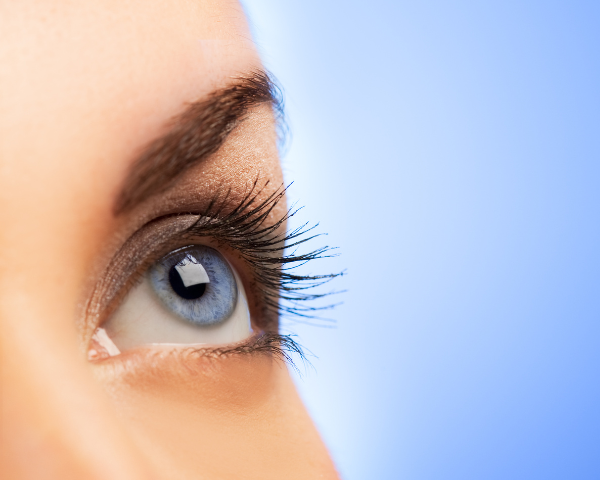
If you have lighter-colored eyes, such as blue, green, or grey eyes, you might have experienced some degree of light sensitivity (photophobia).
You might have also wondered why this doesn’t happen to people with darker-colored eyes. The answer lies mainly in eye pigmentation, the size of the iris and genetics.
This article explores why blue eyes are more sensitive to light, the different causes of light sensitivity, and how to deal with it to be able to live your best life out in the sun.
Light sensitivity: photophobia
Light sensitivity, also known as photophobia, is a condition where the eyes become more sensitive to light than usual. This can cause discomfort, pain, and even headaches in those affected.
Blue-eyed individuals are more prone to photophobia due to the lower amount of melanin in their eyes, which allows more light to enter and leads to increased sensitivity.
Several factors can contribute to photophobia, aside from eye pigmentation and the size of the iris. Eye diseases such as cataracts and corneal abrasions can cause photophobia, as can certain medications, such as antibiotics and antidepressants.
Migraine headaches are also often accompanied by light sensitivity, making blue-eyed individuals who suffer from migraines even more vulnerable.
Symptoms of photophobia
Photophobia, or light sensitivity, can cause a range of symptoms that can be disruptive and uncomfortable for those affected. In addition to discomfort in bright UV light, symptoms of photophobia can include headaches, nausea, and dizziness.
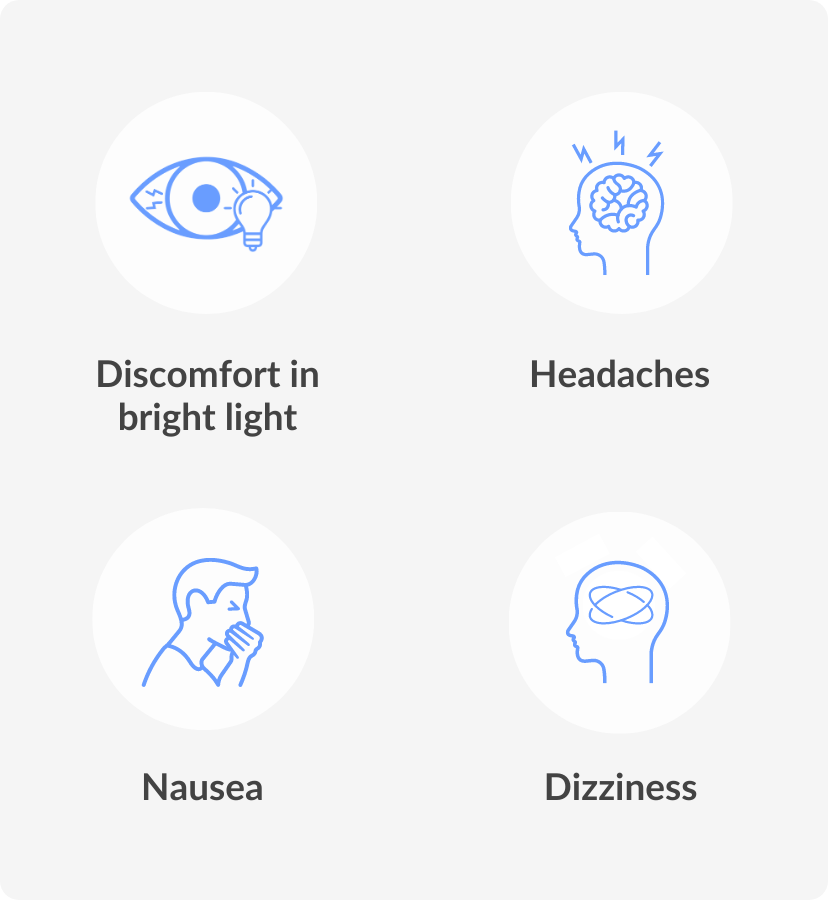
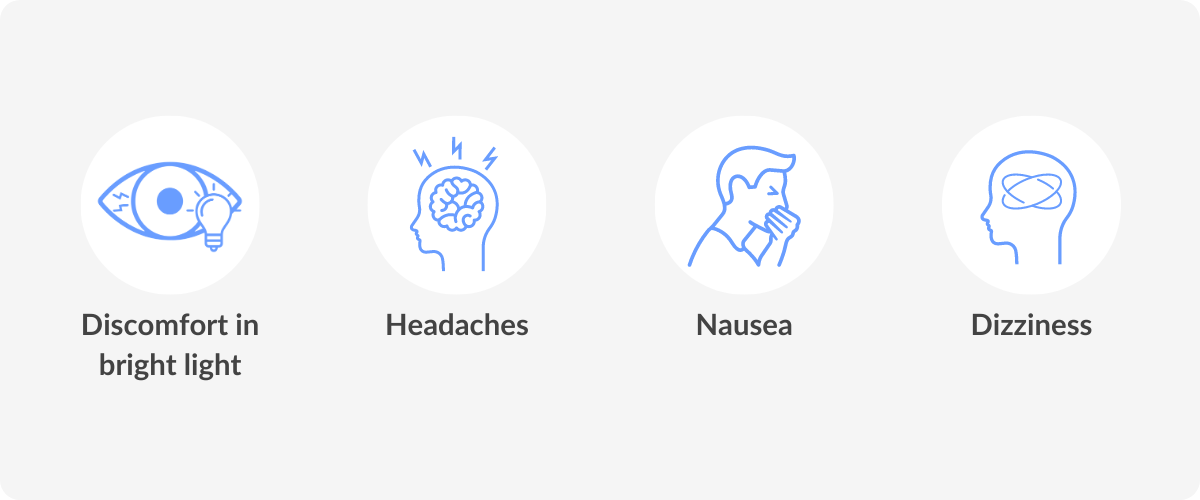
These symptoms can occur in all individuals, although people with lighter-colored eyes may be more prone due to their lower levels of melanin.
Eye color pigment and the iris
Differences between eye pigmentation and the size of the iris are two key factors that contribute to why blue eyes are more sensitive to light.
The eye color, or eye pigmentation, determines how much light is absorbed by the eye. This is influenced by the amount of melanin, a pigment that also dictates skin color and hair color, present in the iris (which is the colored area surrounding the pupil).
Darker pigmentation, such as dark brown eyes, has more melanin and absorbs more light than lighter pigmentation, such as blue and green eyes. As such, the lower amount of melanin in blue eyes allows more light to enter the eye, making them more vulnerable to light sensitivity.
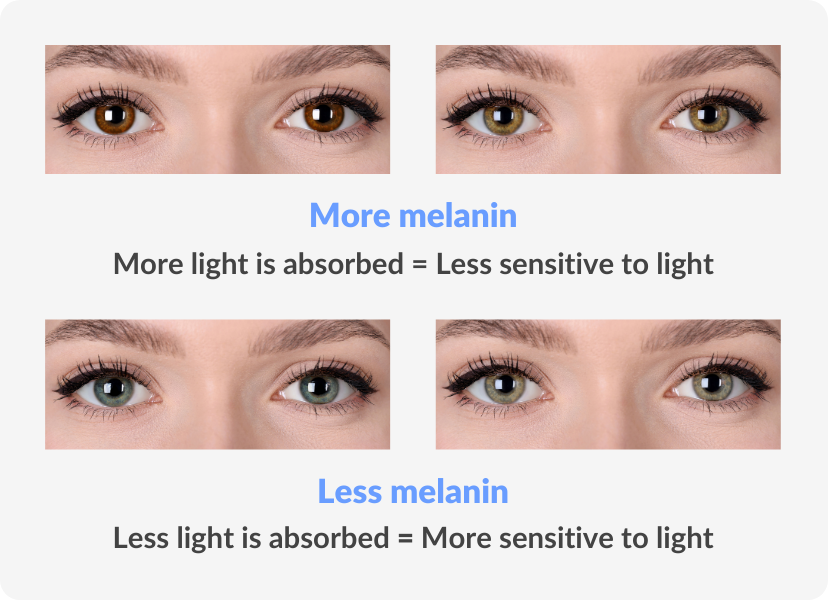
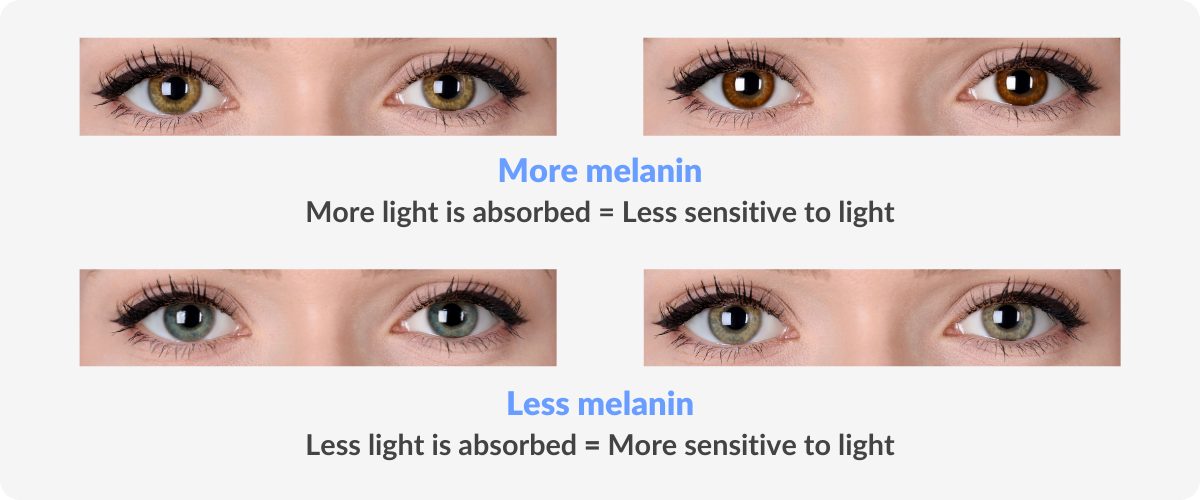
In addition to pigmentation, the size of the iris, which controls how much light enters the eye, also plays a role in light sensitivity.
The iris acts like a camera aperture, opening wider in darker environments to let in more light and closing in brighter environments to let in less light. This is known as the pupillary light reflex.
Typically, people with lighter pigmentation, such as blue eyes, tend to have larger irises than people with darker pigmentation, such as brown eyes. As a result, blue-eyed individuals may have a greater capacity for light entry, which can lead to greater sensitivity to light.
Why do your eyes need sun protection?
Just like our skin needs sunblock, eyes of all colors need sun protection to prevent UV damage (Atlantic Eye Institute 2021), which can lead to eye diseases like cataracts and macular degeneration.
To protect your eyes from the sun’s damaging rays, you should always wear sunglasses that offer at least 99% UVA and UVB protection whenever spending time outdoors. Additionally, a wide-brimmed hat or baseball cap can help provide even better protection for your face and eyes on a sunny day.
Taking proactive steps like taking regular breaks while working on digital devices and limiting exposure to bright lights can also help reduce the risk of developing eye problems or discomfort.
Lastly, eating a nutritious diet full of vitamins A, C and E, as well as zinc and Omega-3 fatty acids, is important for maintaining healthy vision over time.
DID YOU KNOW?
Blue eyes are more sensitive to light
Direct sunlight or other sources of UV rays exposure can cause photophobia, resulting in symptoms such as vision discomfort, headaches, nausea, and dizziness.
Blue-eyed people are particularly prone to these effects due to having less melanin in their eyes, making them more sensitive to light than those with darker eyes.
By taking care of your eyes every day with protective measures such as wearing sunglasses or hats when outdoors, along with having an overall healthy lifestyle routine, you will be able to alleviate or avoid any discomfort caused by light sensitivity. If the issue does persist over time, we do recommend going to your eye doctor for a checkup.
For any questions related to eye care and/or tips on which sunglasses would be best to protect your blue eyes properly, you can reach out to our online certified opticians at SmartBuyGlasses.








































